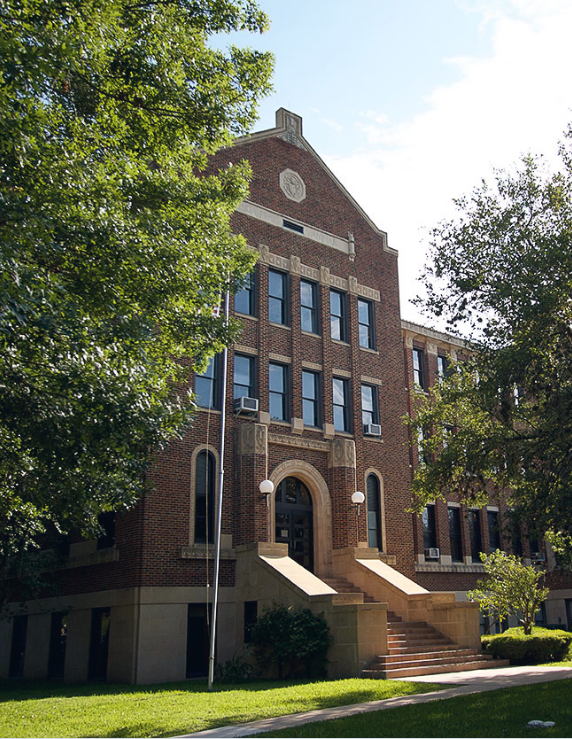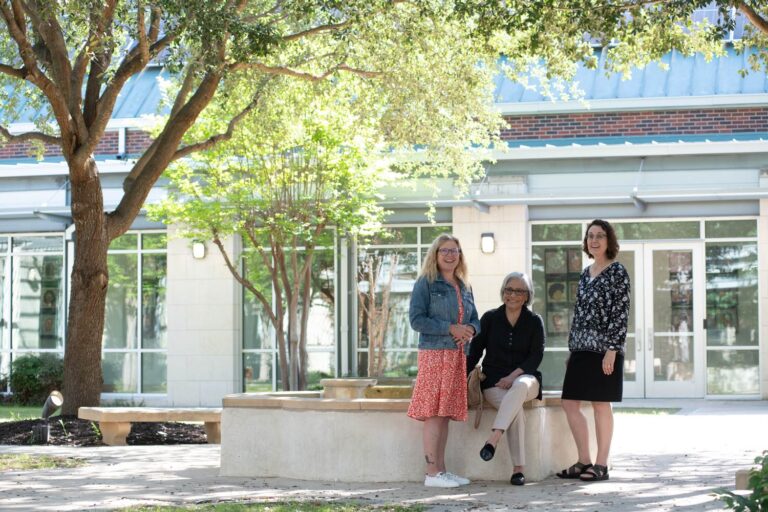“I was told that this had nothing to do with theology, which was said to be about personal sanctification more than social justice. Christian and Catholic theology has been marked off by what I call the systemic erasure of the black body and its pain and ecstasy, its trauma and its beauty, its talents and its trials, its resilience and its struggles.”
A Fordham University theologian has made a biting critique of racial injustice in church and society an integral part of his theological reflection. Oblate School of Theology acknowledged his contributions to Catholic theology by awarding him an honorary Doctorate of Humane Letters May 5. He addressed an invitation only audience at the School May 4.
Father Bryan Massingale, a priest of the Archdiocese of Milwaukee and a professor of theological and social ethics at Fordham, previously was a theology professor at Marquette University. In 2009, Marquette awarded him its highest distinction for teaching excellence. He is one of the world’s leading Catholic social ethicists and scholars of African American theological ethics, racial justice and liberation theology.
Fr. Massingale is a former president of the Catholic Theological Society of America and convenor of the Black Catholic Theological Symposium. His 35-page resume includes more than 80 articles, book chapters and book reviews for such publications as Theological Studies, New Theology Review, Journal of the Society of Christian Ethics, Philosophy and Theology, Journal of Religion and Society, National Catholic Reporter and Catholic Peace Voice. His book Racial Justice and the Catholic Church won a first place book award from the Catholic Press Association in 2009.
His work on racial justice and justice in sexual ethics is nationally known, and many of his colleagues at Fordham assign his work to their students. Several doctoral students have cited his work in their dissertations, according to a Fordham news publication.
During his address accepting the OST honor, Fr. Massingale asserted that theologians must be thinkers for the hierarchy and for the entire people of God, “trying to make sense out of their human experience and to bring human experience into dialogue with faith.”
The motivation for his work comes from his parents’ and grandparents’ flight from Belzoni, Miss., in the middle of the night in fear of their lives in the early 1940s to move to Milwaukee.
“They were part of the Great Migration of six million African Americans from the South from 1910-1970, the largest internal movement of people in world history not caused by famine or war,” the priest explained. “It was a forced displacement, caused by racial terror and the threat of violence – largely involuntary relocations compounded by unspoken trauma. These were terror survivors leaving the South in search of safety, bearing with them an oppressed history of hidden suffering and secret pain, of horrors not spoken,” he explained.
When he entered Milwaukee’s St. Francis de Sales Seminary and began studying theology, he received a rude awakening. “I was told that this had nothing to do with theology, which was said to be about personal sanctification more than social justice. Christian and Catholic theology has been marked off by what I call the systemic erasure of the black body and its pain and ecstasy, its trauma and its beauty, its talents and its trials, its resilience and its struggles,” he explained.
“The voices, questions, moans and laments of black and dark-skinned bodies had to be erased and silenced, marginalized and trivialized in Christian discourse and Catholic reflection because theology had another role to play: providing a sacred canopy to legitimate the racial injustices in our nation, to justify the sufferings of the Great Migration, Manifest Destiny and African colonization as somehow being ‘the will of God’,” he continued.
His focus on racial injustice makes people uncomfortable, he said, so the tendency is to say that “the story doesn’t have anything to do with our story.” The struggle against racial injustice – “a struggle to make sense out of unspoken trauma and unshared horrors” – motivates his existential compassion and passion.
While he was being evaluated for a full professorship, Fr. Massingale said, he was told more than once that his work had nothing to do with real theology and wouldn’t go anywhere.
“The story of my family is our story. We cannot understand who we are and why we are as we are if we do not confront the pain and the ecstasy, the horror and the joy. My vocation has been a struggle to make sense out of unspoken trauma and unshared horrors, with the insistence that these traumas and horrors are not black ones, for the black story is the American story,” the priest asserted.
Sr. Addie Lorraine Walker, SSND, Director of OST’s Sankofa Institute for African American Pastoral Leadership, said Fr. Massingale “is willing to take a stand and be at the forefront of public discussion of issues that may be too controversial for others. He’s brought a historical perspective to the conversation, crafting challenges for the broader Catholic faith community – and to priests, religious and bishops – to re-think how we live out and witness lives of justice faithful to Catholic teaching day to day” Sr. Walker said.
She said challenges Catholics to grow as a church and to proclaim the gospel in our times. “He seeks the prophetic word of God in situations of injustice – especially racism and poverty –helping us all to show responsible love and concern for the marginalized, the excluded or overlooked, and those without voices,” she said.
By J. Michael Parker



